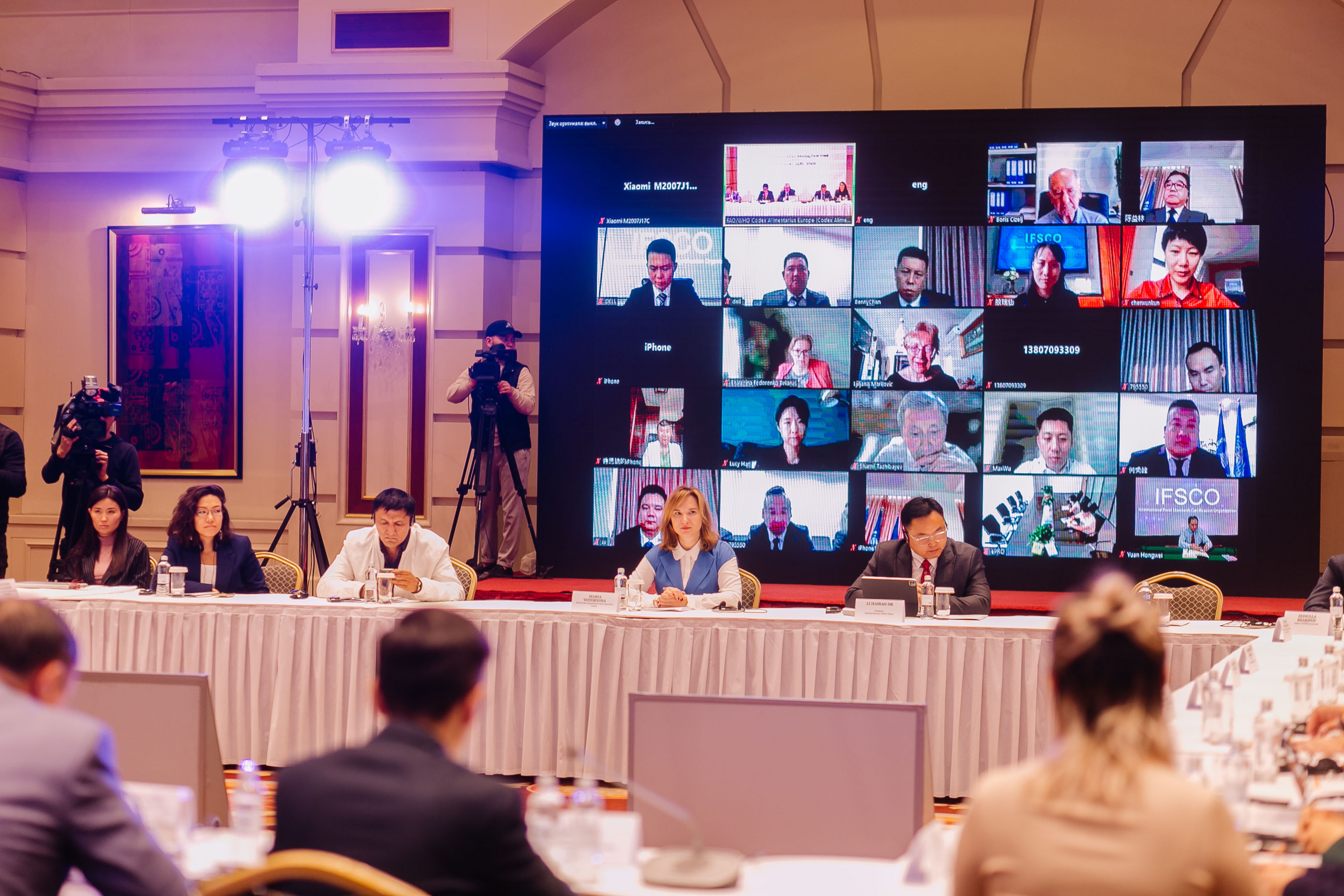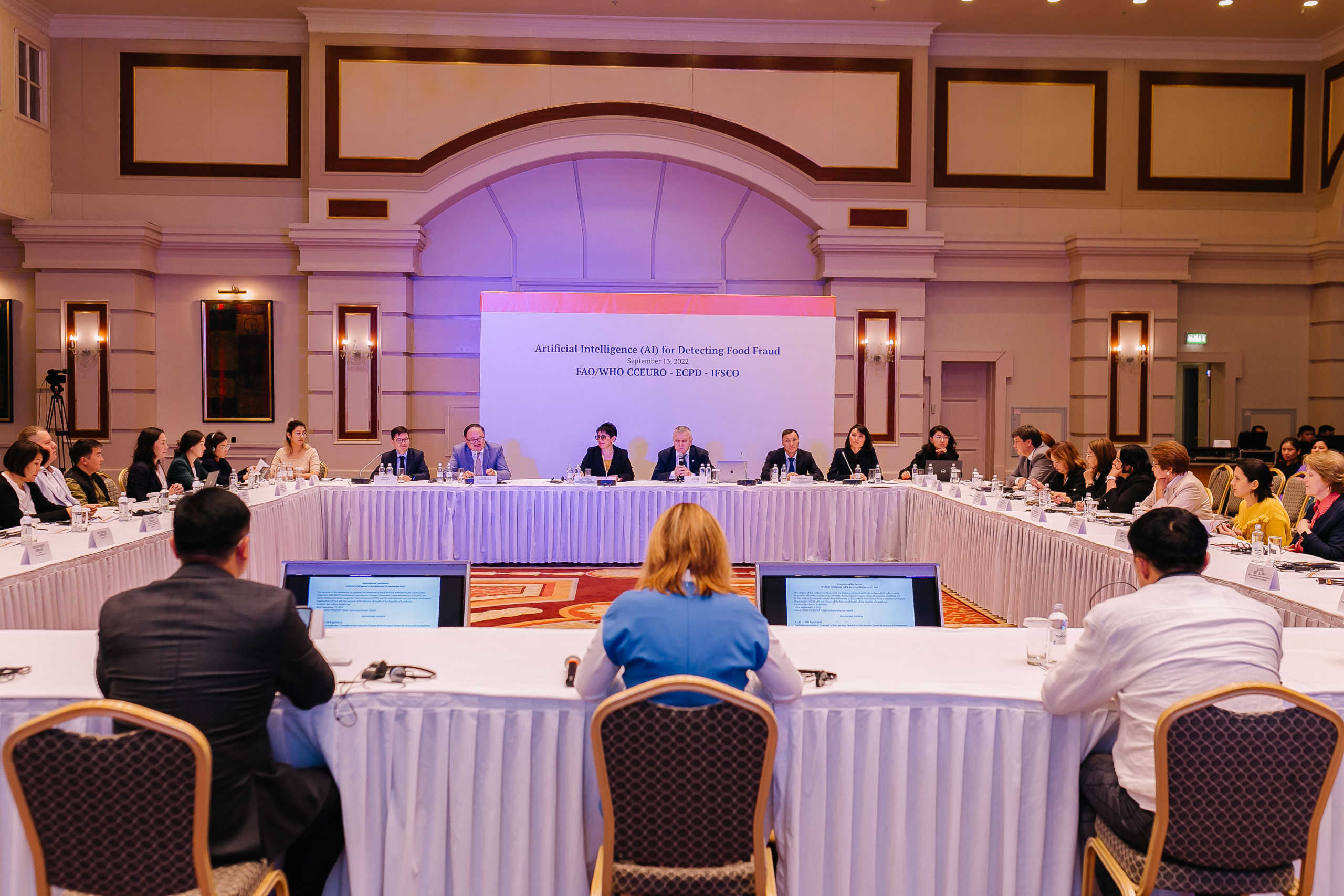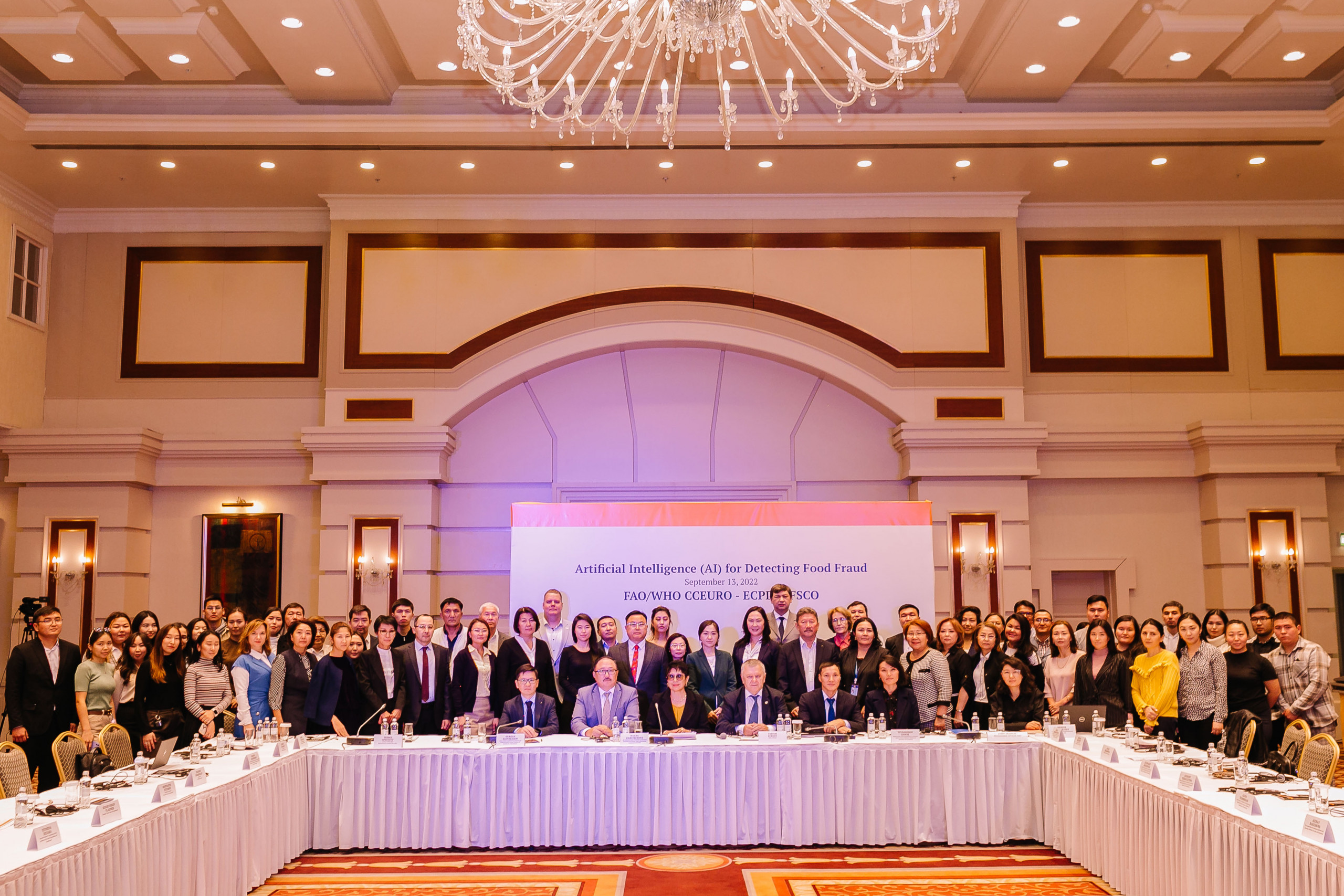Aigerim Zhorgabayeva, the representative of the Sub-Regional Representation of the World Organisation for Animal Health for Central Asia, participated in the international conference “Artificial Intelligence for detecting food fraud” in Nur-Sultan, Kazakhstan. It was an excellent opportunity to present the activities of WOAH regarding digital transformation and data management as one of the pillars of the recently adopted 7th Strategic Plan. The conference was organized at the initiative of the FAO/WHO Coordinating Committee for Europe (CCEURO) of the Codex Alimentarius, the European Center for Peace and Development of the United Nations University for Peace (ECPD), the International Food Standards Certification Organization (IFSCO), with the support of the Ministry of Health of the Republic of Kazakhstan.
According to the FAO Foresight program using artificial intelligence, food shortages and insecurity is predicted in the near future, upon the occurrence of which food fraud would be a serious problem in many countries. Today, the cost of food fraud to the global food production industry is approximately 30 billion euros annually. The WHO estimates that nearly 1 in 10 people become ill after eating food fraud, resulting in 420,000 deaths each year.
“It is expected that the scams trend becomes more active during a food crisis. In this connection, the development and implementation of new digital technologies aimed at preventing the falsification of food products is very timely and relevant,” said Nurkan Sadvakasov, Chairman of the Committee of Sanitary and Epidemiological Control of the Ministry of Health of the Republic of Kazakhstan.
WOAH, as an international organisation that is responsible for the collection, analysis, and dissemination of a large amount of official data through various platforms and processes, data used in the World Animal Health Information System (WAHIS), including WAHIS-Wild, a database on the use of antimicrobials ( AMU), as well as the results of the Veterinary Services Performance Pathway (PVS Pathway) missions, must ensure that its data management systems enable the secure management of information assets and maintain access to validated datasets for the international community. Our strategic objectives are to develop WOAH data strategy and improve data management, as well as to improve accessibility and visibility of data for stakeholders’ uses.
The conference, which was attended by 1,680 participants from Europe and Asia, adopted a resolution outlining actions to promote international Codex standards through artificial intelligence. One of the important points of which is the creation of an Artificial Intelligence Center for the certification of the authenticity of food products and food additives based on the international FAO/WHO Codex Alimentarius standards for the development of trade between Europe and Asia. The Center will operate as an international consortium of leading artificial intelligences from Europe, Asia, and America, headquartered in Kazakhstan.


